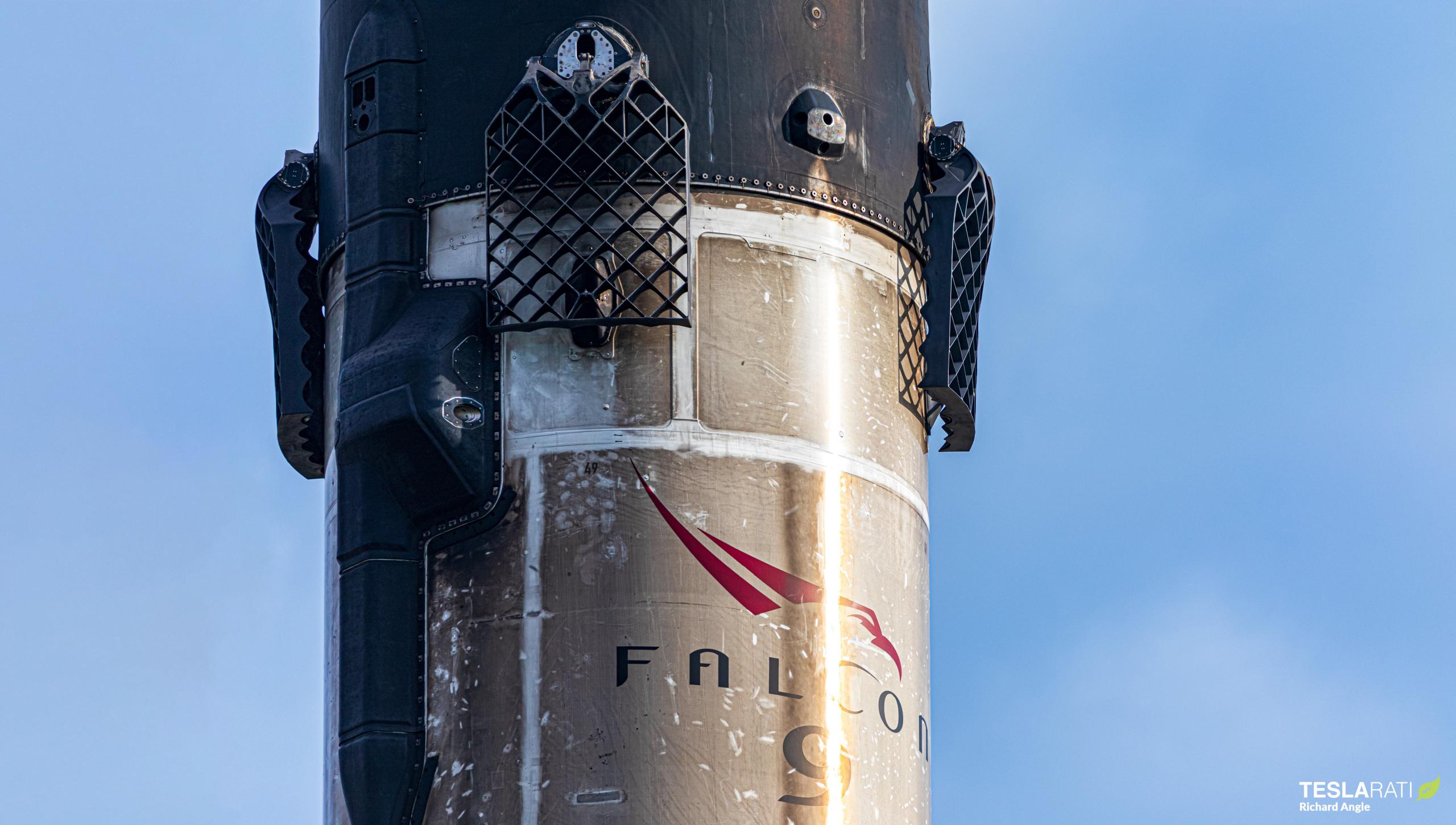
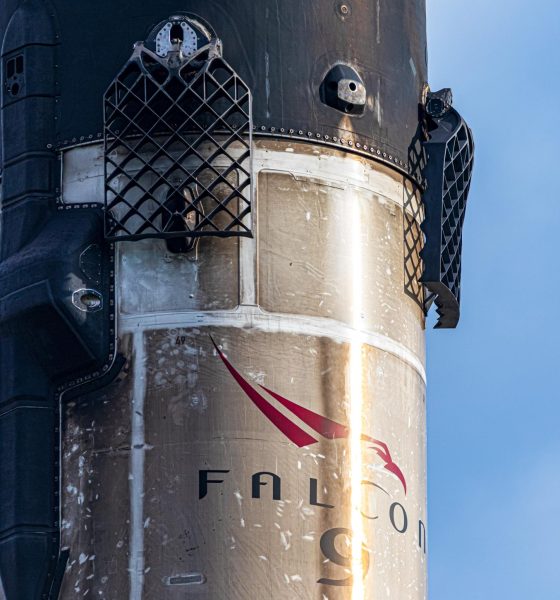
News
SpaceX Falcon 9 “fleet leader” returns to port after record reuse
SpaceX is well and truly 70% of the way to a longstanding rocket reusability target after successfully launching and landing the same Falcon 9 booster on seven orbital-class missions.
Known as Falcon 9 B1049, the record-breaking rocket booster and new “fleet leader” safely returned to Port Canaveral aboard drone ship Of Course I Still Love You (OCISLY) on Saturday, November 28th. Aside from a minor hiccup and 24-hour delay from a vague need for “additional mission assurance,” Falcon 9’s seventh-flight debut was as flawless as ever, simultaneously marking the rocket’s 100th launch overall and 99th success after a decade of operation.
Crystallized in May 2018 and floated many times before by CEO Elon Musk in years prior, SpaceX’s primary goal for Falcon 9 reusability has been ten flights per booster with near-zero refurbishment between launches for several years. As such, Falcon 9 B1049’s latest success means that SpaceX is just three flights away from crossing that partly symbolic but still spectacular milestone.
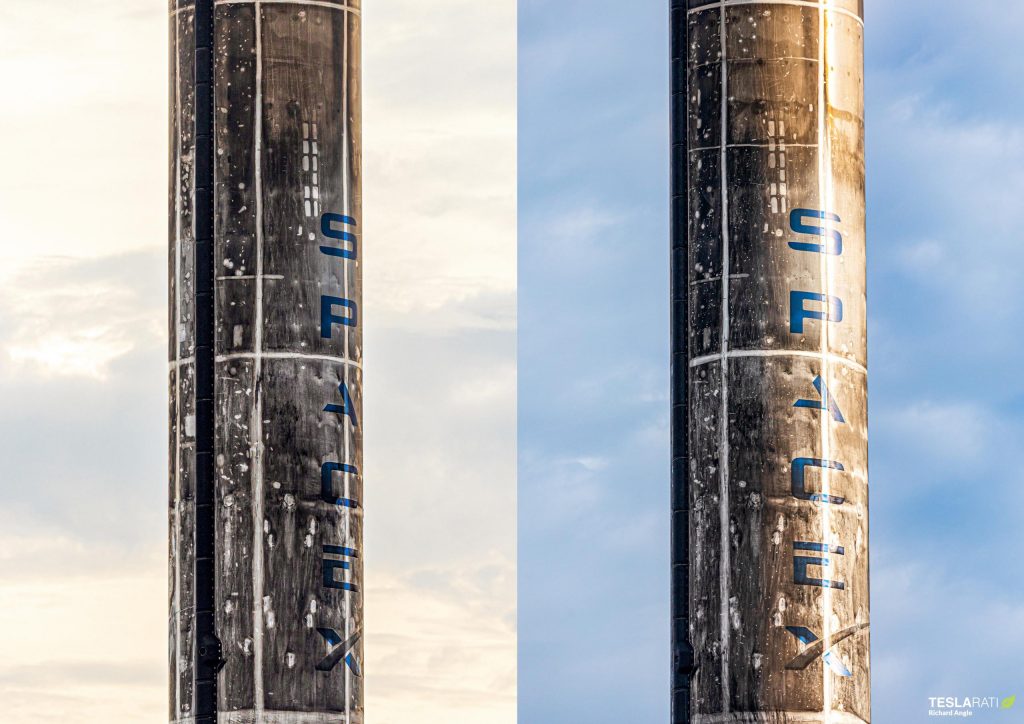
For as long as SpaceX and Musk have been transparent about their desire to implement reusability into orbital-class rockets, entrenched competitors like Arianespace and United Launch Alliance (ULA) have almost continuously responded with vague internal studies that conclude that changing their ways is counterproductive. Often, somewhat arbitrary figures arise, with ULA executives frequently falling back on the excuse that SpaceX-style reusability only makes financial sense if a booster fleet averages at least ten flights each.
Arianespace executives have echoed similar sentiments over the years and more recently implied that it would only ever make sense to invest in SpaceX-style reusability if the conglomerate could guarantee at least 30 launch contracts annually.
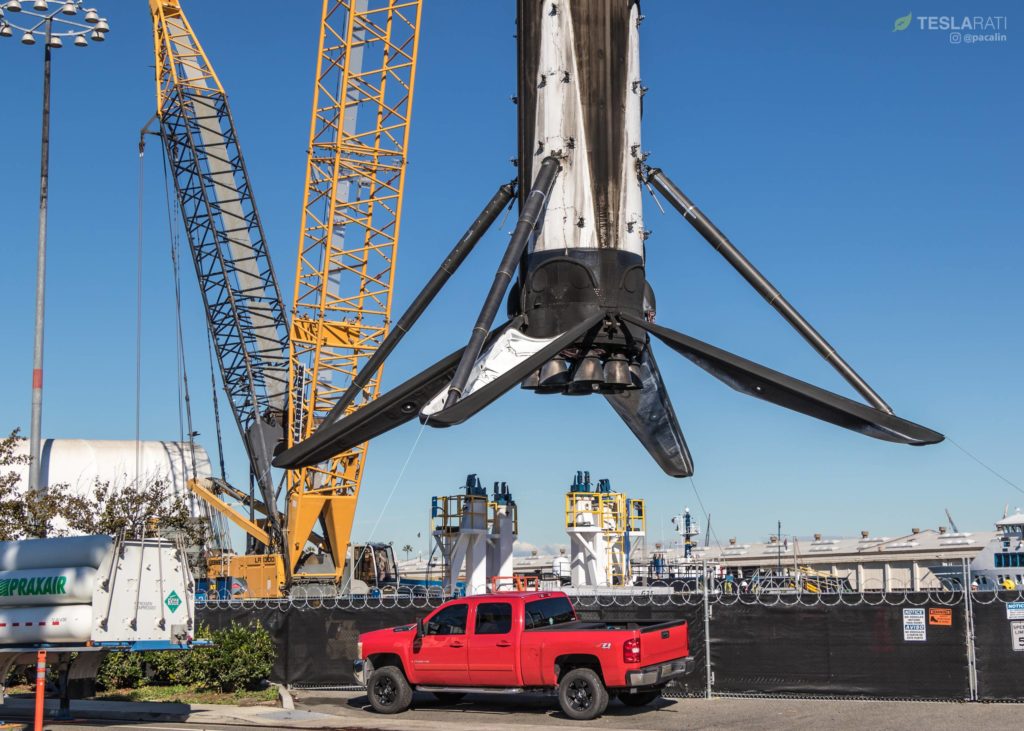
Instead of complaining and splitting theoretical hairs for the better part of a decade, SpaceX simply started working. After many tries, the first successful Falcon 9 booster landing came in December 2015. ~15 months later, SpaceX reused an orbital-class rocket booster on a commercial mission for the first time ever. Another 14 months after that, Falcon 9 Block 5 debuted with a bevy of upgrades focused on reusability and reliability, and that same Falcon 9 booster became the first to launch on three orbital-class missions just seven months later.
Falcon 9 B1049 debuted in September 2018. 26 months later, the rocket has completed its seventh successful launch and landing, averaging one orbital satellite launch every ~110 days – an impressive feat for the fourth Block 5 booster ever built. Newer boosters like Falcon 9 B1058 are already improving on the records of their predecessors, managing an average of one launch every 60-80 days.
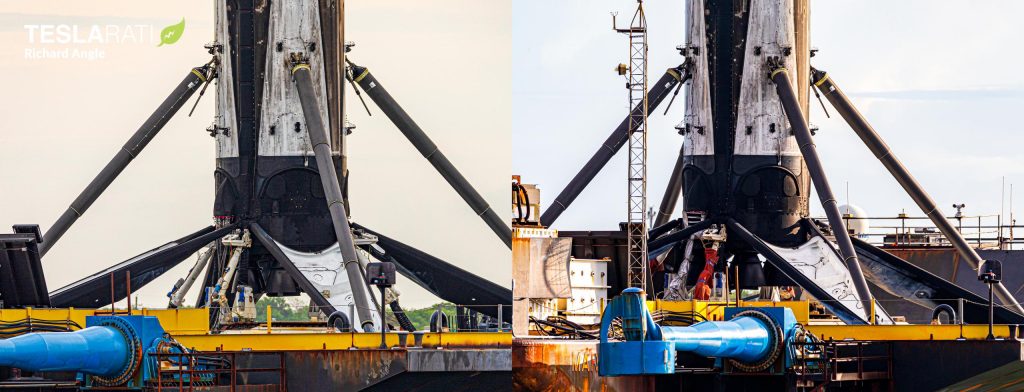
Even if ten flights were to inexplicably become a permanent design limit for all Falcon operations, SpaceX’s current fleet of eight flight-proven Falcon 9 boosters would still be capable of singlehandedly supporting at least 54 more launches, with another 16 on top of that if two dormant Falcon Heavy side boosters are converted for single-core use. SpaceX is unlikely to stop producing Falcon boosters for at least another year or two, adding at least 6-10 more first stages to the fleet to support dozens of crucial Falcon 9 and Falcon Heavy launches over the next 5-10 years.
In simpler terms, it’s almost time for SpaceX’s competitors to move their goalposts again. If B1049 can mirror its 2020 average of one launch every ~80 days, the Falcon 9 booster could be ready for its tenth flight as early as Q3 2021 (with B1051 not far behind it).
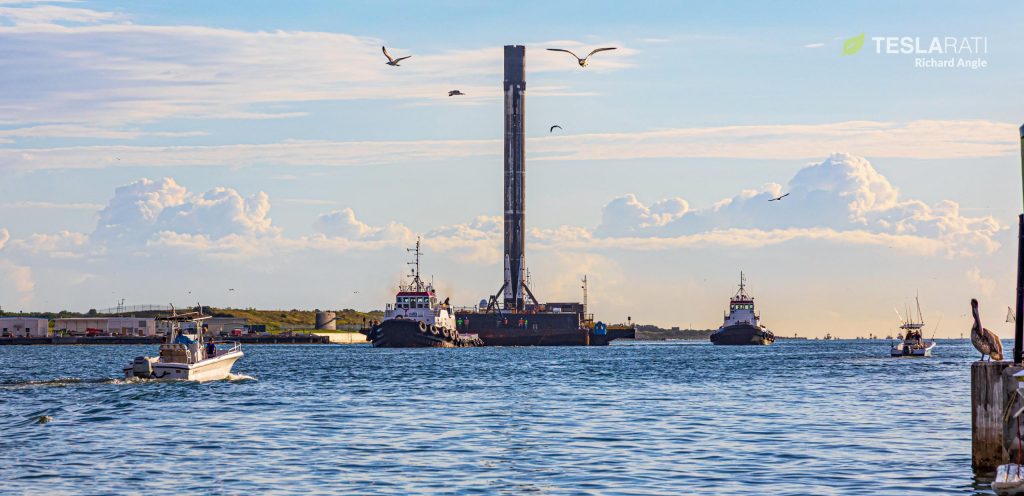
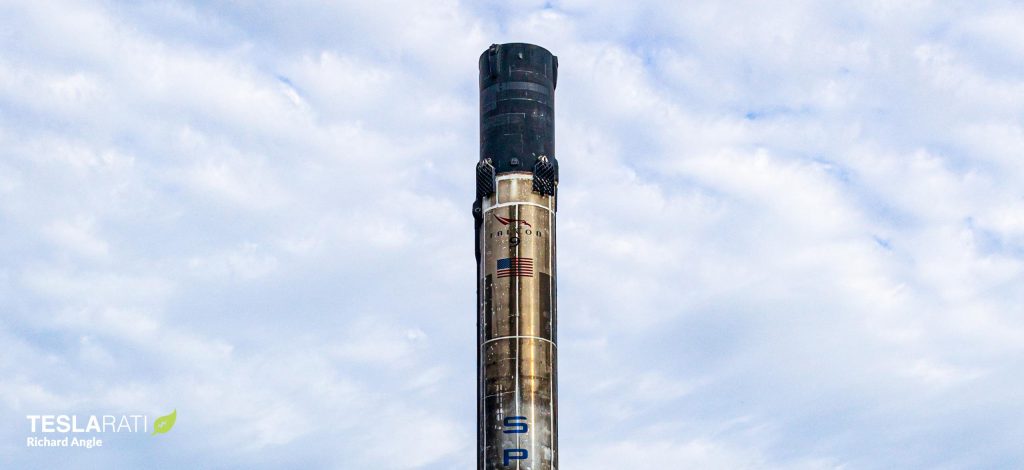
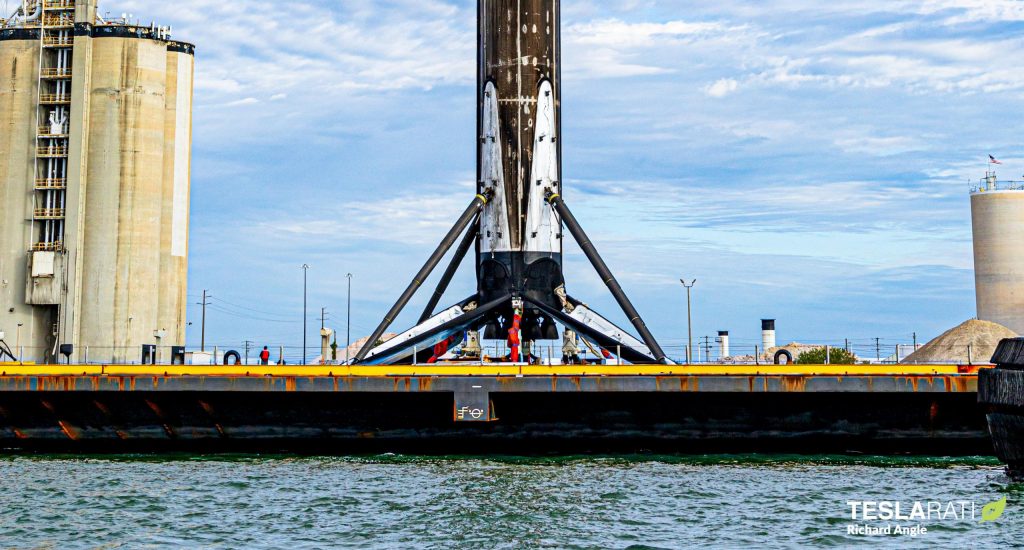
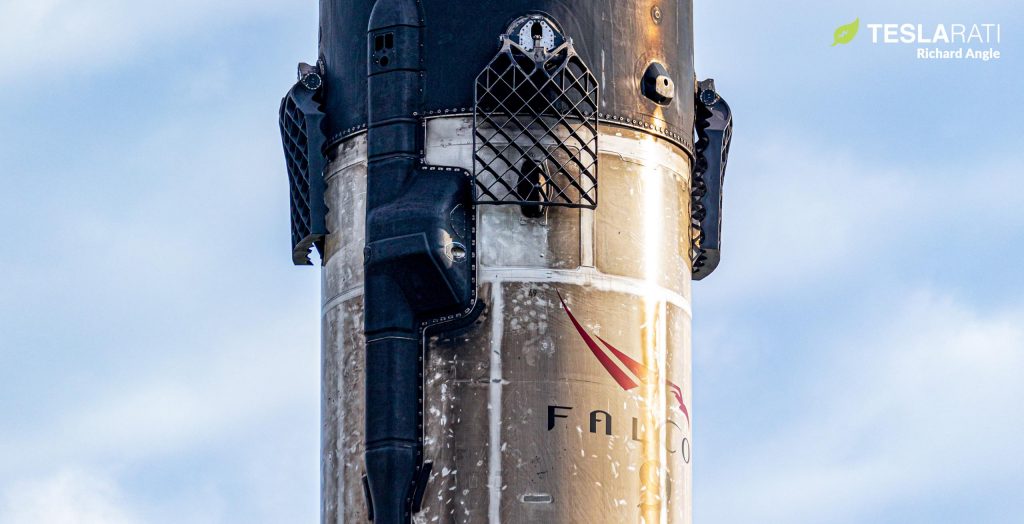

News
Tesla aims to combat common Full Self-Driving problem with new patent
Tesla writes in the patent that its autonomous and semi-autonomous vehicles are heavily reliant on camera systems to navigate and interact with their environment.
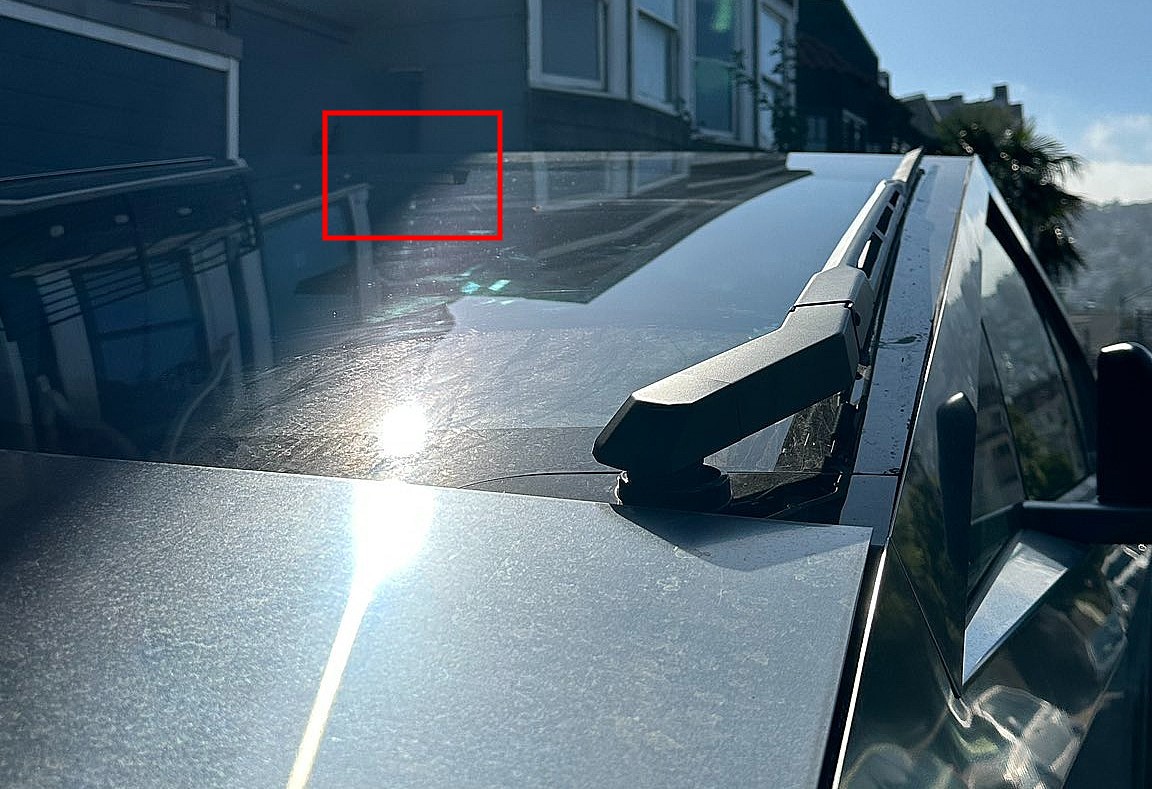
Tesla is aiming to combat a common Full Self-Driving problem with a new patent.
One issue with Tesla’s vision-based approach is that sunlight glare can become a troublesome element of everyday travel. Full Self-Driving is certainly an amazing technology, but there are still things Tesla is aiming to figure out with its development.
Unfortunately, it is extremely difficult to get around this issue, and even humans need ways to combat it when they’re driving, as we commonly use sunglasses or sun visors to give us better visibility.
Cameras obviously do not have these ways to fight sunglare, but a new patent Tesla recently had published aims to fight this through a “glare shield.”
Tesla writes in the patent that its autonomous and semi-autonomous vehicles are heavily reliant on camera systems to navigate and interact with their environment.

The ability to see surroundings is crucial for accurate performance, and glare is one element of interference that has yet to be confronted.
Tesla described the patent, which will utilize “a textured surface composed of an array of micro-cones, or cone-shaped formations, which serve to scatter incident light in various directions, thereby reducing glare and improving camera vision.”

The patent was first spotted by Not a Tesla App.
The design of the micro-cones is the first element of the puzzle to fight the excess glare. The patent says they are “optimized in size, angle, and orientation to minimize Total Hemispherical Reflectance (THR) and reflection penalty, enhancing the camera’s ability to accurately interpret visual data.”
Additionally, there is an electromechanical system for dynamic orientation adjustment, which will allow the micro-cones to move based on the angle of external light sources.
This is not the only thing Tesla is mulling to resolve issues with sunlight glare, as it has also worked on two other ways to combat the problem. One thing the company has discussed is a direct photon count.
CEO Elon Musk said during the Q2 Earnings Call:
“We use an approach which is direct photon count. When you see a processed image, so the image that goes from the sort of photon counter — the silicon photon counter — that then goes through a digital signal processor or image signal processor, that’s normally what happens. And then the image that you see looks all washed out, because if you point the camera at the sun, the post-processing of the photon counting washes things out.”
Future Hardware iterations, like Hardware 5 and Hardware 6, could also integrate better solutions for the sunglare issue, such as neutral density filters or heated lenses, aiming to solve glare more effectively.
Elon Musk
Delaware Supreme Court reinstates Elon Musk’s 2018 Tesla CEO pay package
The unanimous decision criticized the prior total rescission as “improper and inequitable,” arguing that it left Musk uncompensated for six years of transformative leadership at Tesla.

The Delaware Supreme Court has overturned a lower court ruling, reinstating Elon Musk’s 2018 compensation package originally valued at $56 billion but now worth approximately $139 billion due to Tesla’s soaring stock price.
The unanimous decision criticized the prior total rescission as “improper and inequitable,” arguing that it left Musk uncompensated for six years of transformative leadership at Tesla. Musk quickly celebrated the outcome on X, stating that he felt “vindicated.” He also shared his gratitude to TSLA shareholders.
Delaware Supreme Court makes a decision
In a 49-page ruling Friday, the Delaware Supreme Court reversed Chancellor Kathaleen McCormick’s 2024 decision that voided the 2018 package over alleged board conflicts and inadequate shareholder disclosures. The high court acknowledged varying views on liability but agreed rescission was excessive, stating it “leaves Musk uncompensated for his time and efforts over a period of six years.”
The 2018 plan granted Musk options on about 304 million shares upon hitting aggressive milestones, all of which were achieved ahead of time. Shareholders overwhelmingly approved it initially in 2018 and ratified it once again in 2024 after the Delaware lower court struck it down. The case against Musk’s 2018 pay package was filed by plaintiff Richard Tornetta, who held just nine shares when the compensation plan was approved.
A hard-fought victory
As noted in a Reuters report, Tesla’s win avoids a potential $26 billion earnings hit from replacing the award at current prices. Tesla, now Texas-incorporated, had hedged with interim plans, including a November 2025 shareholder-approved package potentially worth $878 billion tied to Robotaxi and Optimus goals and other extremely aggressive operational milestones.
The saga surrounding Elon Musk’s 2018 pay package ultimately damaged Delaware’s corporate appeal, prompting a number of high-profile firms, such as Dropbox, Roblox, Trade Desk, and Coinbase, to follow Tesla’s exodus out of the state. What added more fuel to the issue was the fact that Tornetta’s legal team, following the lower court’s 2024 decision, demanded a fee request of more than $5.1 billion worth of TSLA stock, which was equal to an hourly rate of over $200,000.
Delaware Supreme Court Elon Musk 2018 Pay Package by Simon Alvarez
News
Tesla Cybercab tests are going on overdrive with production-ready units
Tesla is ramping its real-world tests of the Cybercab, with multiple sightings of the vehicle being reported across social media this week.
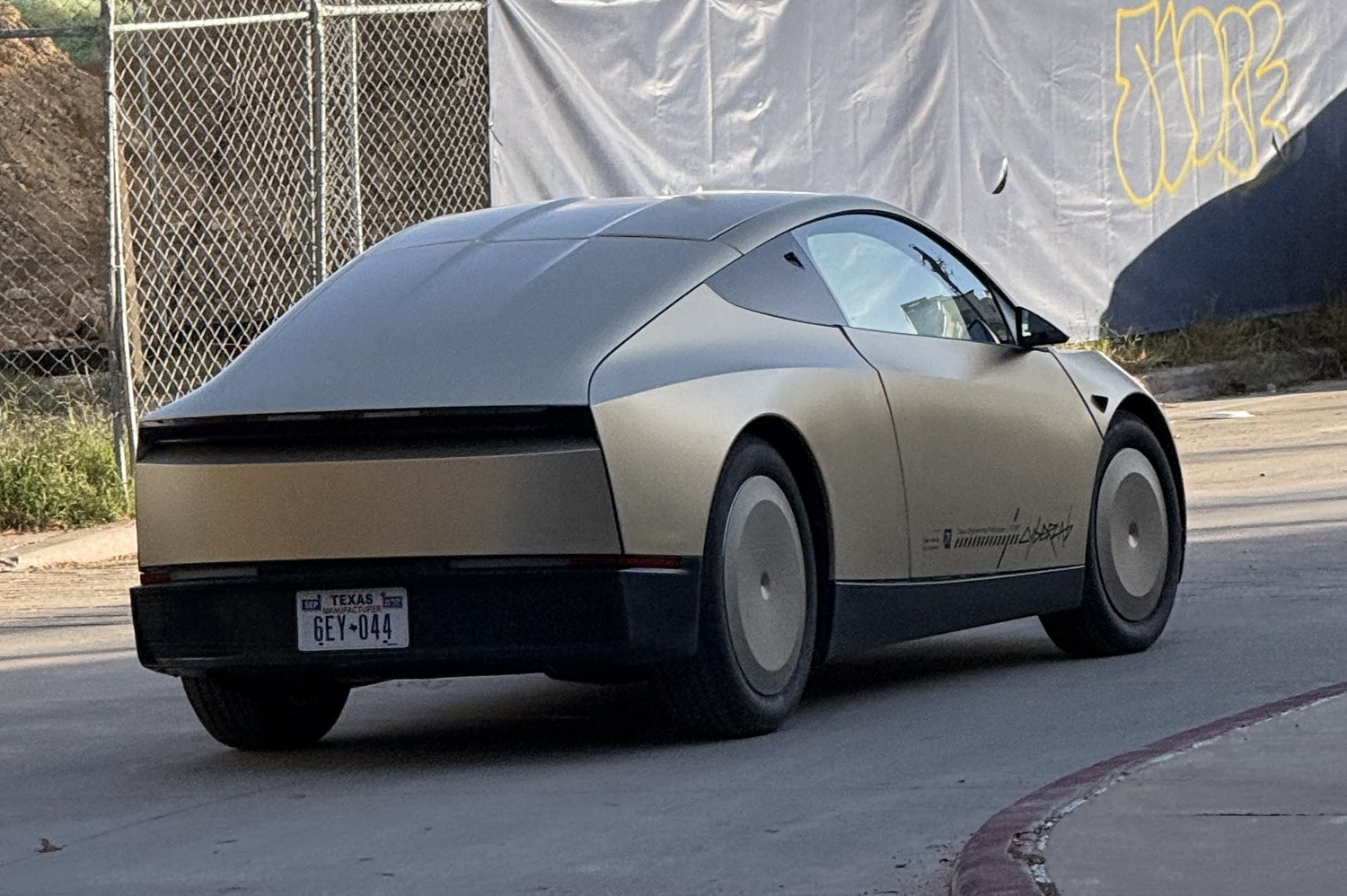
Tesla is ramping its real-world tests of the Cybercab, with multiple sightings of the autonomous two-seater being reported across social media this week. Based on videos of the vehicle that have been shared online, it appears that Cybercab tests are underway across multiple states.
Recent Cybercab sightings
Reports of Cybercab tests have ramped this week, with a vehicle that looked like a production-ready prototype being spotted at Apple’s Visitor Center in California. The vehicle in this sighting was interesting as it was equipped with a steering wheel. The vehicle also featured some changes to the design of its brake lights.
The Cybercab was also filmed testing at the Fremont factory’s test track, which also seemed to involve a vehicle that looked production-ready. This also seemed to be the case for a Cybercab that was spotted in Austin, Texas, which happened to be undergoing real-world tests. Overall, these sightings suggest that Cybercab testing is fully underway, and the vehicle is really moving towards production.
Production design all but finalized?
Recently, a near-production-ready Cybercab was showcased at Tesla’s Santana Row showroom in San Jose. The vehicle was equipped with frameless windows, dual windshield wipers, powered butterfly door struts, an extended front splitter, an updated lightbar, new wheel covers, and a license plate bracket. Interior updates include redesigned dash/door panels, refined seats with center cupholders, updated carpet, and what appeared to be improved legroom.
There seems to be a pretty good chance that the Cybercab’s design has been all but finalized, at least considering Elon Musk’s comments at the 2025 Annual Shareholder Meeting. During the event, Musk confirmed that the vehicle will enter production around April 2026, and its production targets will be quite ambitious.








